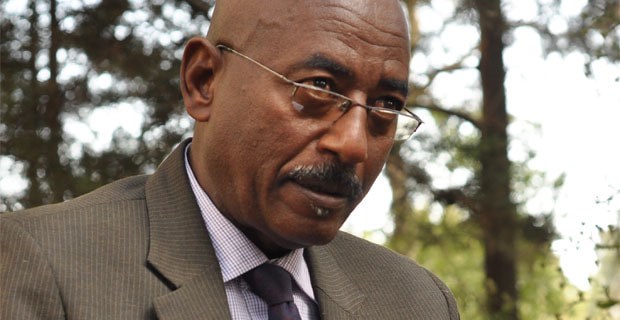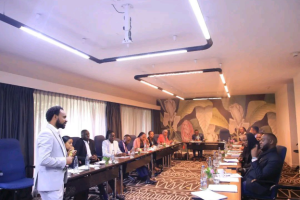
Nature does not respect national borders, and more than 200 river basins are currently shared by two or more sovereign states in our world. Of these, Africa alone has more than fifty basins. Altogether, these basins cover about 47% of the total landmass on earth. This statistics may tell us that nature has not endowed every place on earth with the same type and amount of resources. The multiple-use potential of water in shared river basins makes hydropolitics important among states that share international river basins.
Since colonial and post-colonial times, more than 200 treaties that have been signed and having provisions relating to water, worldwide and entered to force. However, the coordinated and integrated management of shared river basins in the Third World is still extremely rare. If countries sharing international river basins are not willing to develop and use their common water resources in a cooperative and equitable manner, the potential for conflict over water will keep growing.
In order to prevent the emergence of conflicts among the states and peoples that share common water resources, it needs to acquire much more understanding of hydro-politics. There are inter-dependencies among riparian states and the costs of non-cooperation make cooperation inevitable.
The Nile is the world’s longest river, flowing south to north for about 6,825 km, and draining 3.1 million km2 catchment area, which is equivalent to one-tenth of the African continent. Generally speaking, the basin represents large and highly varied hydrological units. The Nile River passes through eleven riparian states that possess different climates and natural formations, from mountainous highlands to barren deserts. The Main Nile has two major tributaries, namely the Blue and White Niles and about six major cataracts. The White Nile’s source is the upper catchment of the Luvironza River, located near to Lake Tanganyika in south-central Burundi. The Blue Nile River springs in the Ethiopian highlands from a small stream called Gilgel Abbay, which is found about 100 km to the southwest of Lake Tana, in Amhara region.
For a long time, phrases such as ‘equitable distribution’, ‘fair allocation of water’, ‘water sharing agreement’ and the like have sounded nonsensical for Egyptians. The Egyptians also put forward another argument to maintain the status quo; they argue by saying that 98 per cent of their country is desert; their rainfall amount is literally nil, in effect, deterring them to carry out rain-fed agriculture. Additionally, Egypt claims that it has historical rights on the Nile and will be governed by the hydro-political doctrines of ‘prior use’, ‘primary need’ and ‘acquired rights’.
These principles have all along been considered by the Egyptians as a bottom line to any negotiations and seem to be an Egyptian foreign policy benchmark. The Ex-Egyptian Ambassador to Ethiopia, Marawan Badr, at one point stated that “the concern with the Nile waters is not just a national security issue but rather a national survival obsession”. As a result of this, ‘Nile water obsession’, the Egyptian position concerning the development and utilization of the Nile waters. Irrespective of the objections raised against the existing colonial and postcolonial treaties and agreements by upstream states, Cairo still considers these colonial treaties as legally binding.
After the US-sponsored Camp David Accord in 1979, the hydro-political stances in the basin have clearly benefited Egypt, in effect. Nothing demonstrates this state of affairs better than the continuous threats of war and conflict-laden statements that are frequently uttered by Egyptian leaders and politicians. The rhetoric, uncompromising stand and confidence of the Egyptians are born out of the various wrong perceptions; taking Ethiopia as a poor country, could not generate financial resources internally to undertake hydraulic works (thanks to all Ethiopians and their government, that have proven the perceptions wrong with the GERD construction). The Egyptians have in the past used diplomatic pressures to block international institutions’ from financing mega projects that uses the Nile. Such acts had definitely produced a temporary setback but had left their traces to further complex hydro-political problems over the Nile Basin.
The so-called agreements of the years of 1929 and 1959 represented key points which favored Egypt, in the hydro-political relations in the Nile basin. Ninety years ago, the first Nile Water Agreement was signed between Egypt and Great Britain on behalf of Sudan and other British colonies in the basin (Uganda, Kenya, Tanzania). The Agreement included ‘’specific volumetric water allocations’’, and helped to institutionalize the belief that Egypt and Sudan had “natural and historic rights” to the Nile water. Ethiopia was not part of the agreement and refused to acknowledge it.
Sixty years ago, the 1929 “agreement” was replaced by the 1959 “agreement” for the full utilization of the Nile waters. After the Independence of Sudan in 1956, Egypt’s plans to build the High Aswan Dam and the need to renegotiate existing water allocations under the 1929 Agreement. The 1959 Agreement reinforced downstream claims of “natural and historic rights” to the Nile waters, and became both Sudan and Egypt’s ‘redline’ for future negotiations in the basin. The upstream states were not included in the Agreement, and have continuously criticized its bilateral nature. The 1959 version represents the backbone of the hydro-political dilemma in the Nile basin. Downstream riparian states want to maintain the 1959 Agreement, while upstream riparian countries want to replace it with an agreement based on equitable sharing.
Ethiopia has repeatedly claimed rights to the Nile water resources. Indeed, it demands that the 1959 agreement be superseded and, any new agreement should provide through participation of all riparian states. Over the last couple of decades, Ethiopia has been determined to tackle such problematic legal issues and has been proactive in promoting multilateral legal negotiations.
Ethiopia has increased its bargaining power to influence hydro-political relations. By a year 1997, Ethiopia was successful in its strategy to impose negotiations for a multilateral use right and institutional framework. The negotiations for the Nile Cooperative Framework Agreement which lasted a decade became clear that Ethiopia had convinced the six Nile sharing states to vote unanimously in favor of a draft document that endorses the principle of ‘’equitable sharing’’.
In the earlier times, in the Nile basin affairs, Ethiopia seems to be a ‘silent partner’ but Ethiopia is no longer silent, and is using the bargaining power derived through its position as the upstream riparian states.
Here, I am interested in briefly messaging opinions to the ongoing discussions among Ethiopia, Egypt and Sudan;
The growing water needs of populations of riparian states are expected to put increasing pressure on the scarce and the political consequences of global warming and climate change is an activity that seems to invite alarmism. That is why some scholars assert that, in a geopolitical sense, water is likely to become the “oil of the next century”. We, the peoples who live along the Nile basin need to avoid alarmism and advice leaders to set their mind for a balanced, thoughtful consideration of the risks of hydro-political conflicts.
The attainment of sustainable economic development, environmental well-being, human security and human rights are not possible without cooperation among states and peoples that share river basins. Therefore, equitable utilization on Nile basin is a significant factor when considering future economic growth among the riparian countries. For this reason, multilateral negotiations between up and down stream countries will continue to play a significant role during the next relations on Nile basin issues. The downstream countries are also advised to look for Hydro-political Optimism and not to depend on possible interference by, external dominant powers.
In the short term, the construction of Grand Ethiopian Renaissance Dam (GERD) is a blessing for Ethiopian economic growth and other Nile shared countries. Confidently, this Ethiopians self-sponsored project is closer to be finished with the essence of hydro-political optimism.
The Ethiopian Herald April 24/2020
BY TIGISTU AWELU HASSEN




